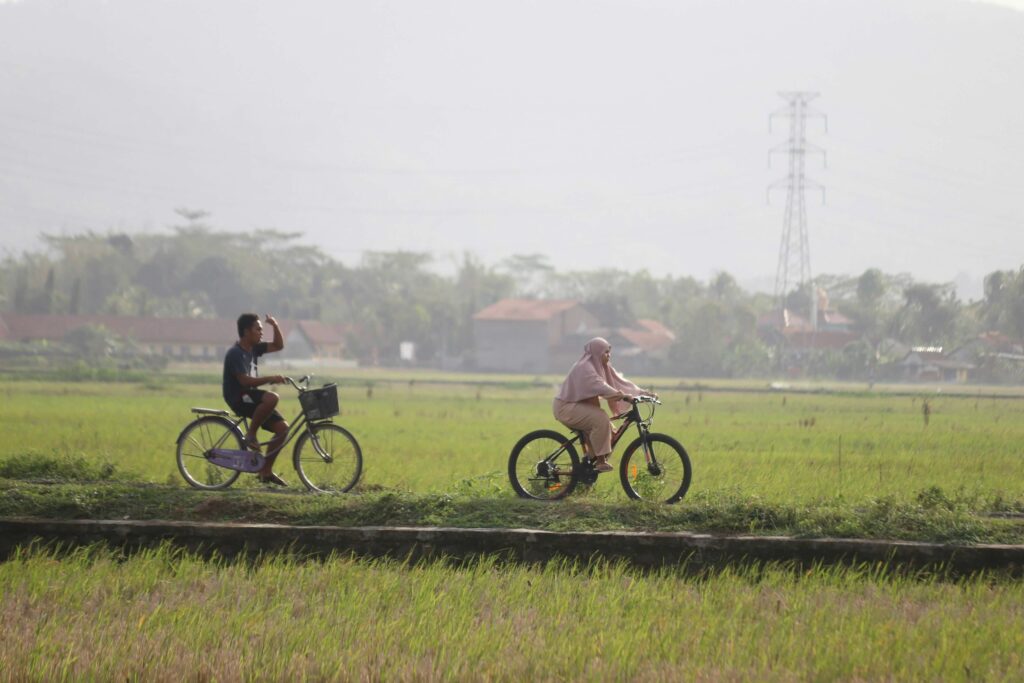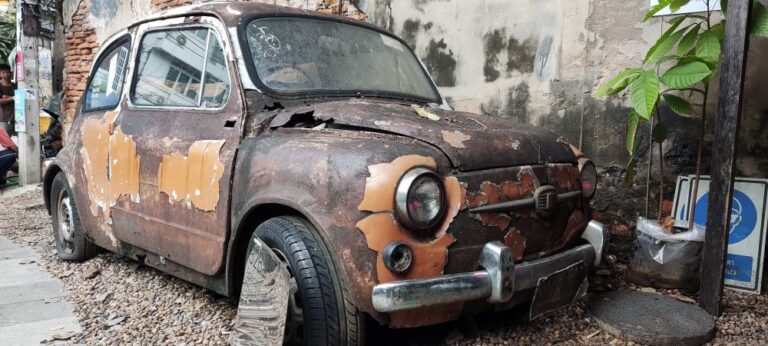Eco-Friendly Tourism in Bali: How to Travel Green (2025)
Table of Contents
- Summary
- Introduction
- 1. Eco-Friendly Tourism Bali: Choose Sustainable Accommodation
- 2. Reduce Plastic Usage
- 3. Use Low-Impact Transportation
- 4. Respect Nature & Sacred Sites
- 5. Eat Local, Seasonal, and Plant-Based
- 6. Support Ethical Experiences
- 7. Want to Go Deeper? Join Eco-Initiatives
- Conclusion
Summary
Eco-friendly tourism Bali doesn’t mean giving up comfort — it means making small, conscious choices that protect what makes the island magical. Traveling sustainably in Bali in 2025 allows you to minimize your impact while supporting local communities and preserving the island’s unique environment.
Introduction
Bali has long been seen as paradise — with its jungles, beaches, temples, and vibrant culture. But behind the dream lies a fragile ecosystem under pressure from over-tourism, plastic pollution, and water shortages.
Eco-friendly travel doesn’t require perfection. It just asks that you stay mindful. With a few conscious choices, you can enjoy the magic of Bali while helping to preserve it.
1. Eco-Friendly Tourism Bali: Choose Sustainable Accommodation

🏡 Look for eco-certifications
Book hotels or guesthouses with certifications like Green Globe, EarthCheck, or EcoBali. Some hostels (e.g. In Da Lodge, Tribal Bali) offer composting, water refill stations, and plastic-free kitchens.
Certifications signal that a property meets specific environmental and community standards. Look for practices such as:
- Solar power
- Water-saving systems
- Composting
- Fair employment policies
🛏️ Stay with local hosts
Homestays and small guesthouses often have a lower footprint than big resorts. Ask about waste practices and water use.
Staying with locals gives you more than a place to sleep — it offers a window into daily life, traditions, and values. Many homestays also cook with homegrown ingredients or support nearby markets.
2. Reduce Plastic Usage
Where you stay sets the tone — but how you move through Bali also makes a big difference.
💧 Refill your water
Tap water isn’t drinkable, but there are refill stations everywhere. Bring a reusable water bottle (Hostels often have filters).
Apps like RefillMyBottle or simply asking your guesthouse will often point you to free or low-cost refill stations. By skipping single-use bottles, you help reduce a major source of plastic waste in Bali.
🛍️ Say no to plastic bags and straws
Plastic waste clogs rivers, harms wildlife, and overwhelms Bali’s waste systems. Refusing plastic is a simple habit that helps mitigate this crisis — and locals appreciate it when visitors come prepared with eco-conscious tools. Carry:
- A foldable tote
- Bamboo or metal straws
- Or simply go without!
♻️ Support zero-waste cafes
Look for places like Zero Waste Bali, The Shady Shack, or Give Cafe in Ubud and Canggu.
These cafes often go beyond banning straws — they compost food waste, use bulk ingredients, and work with local farmers. Supporting them encourages a broader shift in Bali’s food and hospitality sectors. They often serve as community hubs for sustainability efforts and eco-conscious travelers.
All of this supports the larger goal of eco-friendly tourism Bali.
3. Use Low-Impact Transportation
Reducing waste is key — and so is choosing smarter, cleaner ways to get around.

🚲 Rent a bicycle or electric scooter
Especially in Ubud, cycling is scenic and peaceful. E-scooters like Gojek GoRide Electric are now available in some areas.
They’re ideal for short distances and a great way to explore neighborhoods at your own pace. Riding through rice fields or along beach roads lets you experience Bali up close — without the noise or fumes.
🚌 Use shuttle buses or shared vans
Book with Perama Tour or BaliBus for intercity trips.
These are a great way to travel longer distances across Bali without contributing to traffic congestion or excessive fuel use. Shared options are more affordable and efficient, especially for routes between Denpasar, Ubud, and the north coast.
🚶♀️ Walk more
In places like Ubud, Seminyak, or Sidemen, walkable neighborhoods exist. Embrace the slower pace.
Walking not only reduces emissions but lets you notice details you’d otherwise miss — from temple offerings on the sidewalk to hidden local warungs. Even a short walk can connect you more deeply with your surroundings.
4. Respect Nature & Sacred Sites
Respecting Bali means more than limiting pollution — it means honoring the places and people that make it special.
🌿 Stay on trails
Don’t trample rice paddies or sacred spaces for the ’gram. Stick to marked paths when hiking.
Some areas may also host protected flora or nesting sites for birds and reptiles. Staying on paths shows respect for both nature and local regulation.
🧘♀️ Be temple-aware
Temples are active religious spaces, not tourist attractions. Dress modestly — wear sarongs and cover shoulders. Don’t climb on altars or pose disrespectfully. Avoid loud talking, especially during ceremonies. Silence and humility go a long way.
5. Eat Local, Seasonal, and Plant-Based

Even your meals can reflect your values — supporting the land, your health, and the local economy.
Your food choices matter just as much as where you stay or how you get around. Eating locally and seasonally supports Bali’s farmers, reduces transport emissions, and honors traditional knowledge about what grows best, when.
Choosing plant-based or local dishes reduces your environmental footprint. Many warungs serve seasonal produce, and Bali offers a wide variety of vegetarian and vegan-friendly options — especially in Ubud, Canggu, and Sidemen.
Try tempeh satay, nasi campur, or jackfruit rendang — all delicious and climate-friendly!
Supporting plant-forward food culture not only benefits your health but aligns with Bali’s own resourceful, low-waste traditions.
6. Support Ethical Experiences
But sustainable travel also means choosing experiences that do good — not just feel good.
Traveling responsibly also means being mindful of how your actions affect animals, artisans, and local communities.
Avoid exploitative attractions
Elephant rides, tiger selfies, or dolphin shows often hide cruelty behind the scenes. If you’re interested in wildlife, visit genuine rescue and education centers like the Bali Wildlife Rescue Centre or the Turtle Conservation and Education Center, which focus on rehabilitation and awareness rather than entertainment.
Buy consciously
Supporting small makers and craftspeople keeps local traditions alive and helps families thrive. Consider buying:
- Handwoven textiles
- Wood carvings
- Silverwork from local artisans
Avoid mass-produced souvenirs. If you’re curious about respectful cultural practices, our guide to Balinese Traditions and Etiquette offers deeper insight.
Engage with real communities
Participating in cultural workshops, community walks, or cooking classes helps preserve cultural knowledge — but only if the experience is genuinely led by locals. Look for:
- Cultural workshops
- Community walks
- Cooking classes led by locals
Avoid staged tourist-only experiences.
These mindful choices are central to eco-friendly tourism Bali.
7. Want to Go Deeper? Join Eco-Initiatives
Getting involved doesn’t require weeks of volunteering — even small actions make a difference.
Join clean-up efforts
Many local groups and hostels in Bali organize beach or village cleanups. Projects like Trash Hero and Bye Bye Plastic Bags welcome travelers to pitch in and help keep the island beautiful.
These events aren’t just about cleaning beaches — they often involve local education, community-building, and a shared sense of stewardship. It’s a small act with ripple effects.
Learn from real practitioners
Hands-on workshops at places like permaculture farms or eco-villages teach not only sustainability but deep respect for the land. Whether it’s learning to compost, build with bamboo, or harvest rainwater — these experiences are both practical and inspiring.
Many of these programs are run by long-time residents and local families, which makes them a great chance to learn and also contribute directly to community knowledge sharing.
Connect with farmers
In places like Sidemen, Jatiluwih, or Munduk, you can join agro-tourism projects that offer slow, meaningful travel. Spend a morning planting rice, making coconut oil, or learning how climate affects crop cycles — all while connecting with local families.
These slow travel experiences offer perspective — not just on food, but on water use, land stewardship, and the challenges of farming in a changing climate.
It’s another powerful step in embracing eco-friendly tourism Bali.
Conclusion
These tips aren’t just about reducing harm — they’re about enhancing your travel experience. Eco-friendly tourism in Bali doesn’t demand perfection — just intention. Every choice — where you stay, what you eat, how you move — can help preserve what makes Bali magical.
Eco-friendly tourism isn’t a sacrifice — it’s a better way to travel. It helps Bali thrive, and gives you a deeper, more authentic experience in return.
By traveling with awareness, you reduce your footprint while deepening your experience. Go light, tread gently, and enjoy it all 😽




